Foreign Prayer (2017)
ジャンル : 履歴, ドラマ
上映時間 : 1時間 32分
演出 : Akhtem Seitablaiev
脚本 : Mykola Rybalka
シノプシス
Nazi-occupied Crimea, 1944. A boy named Itzhak turns to Saide Arifova, a local Tatar Muslim woman, for help, explaining that he and a group of other Jewish orphans are hiding from the Nazis. Arifova faces a moral dilemma: should she try to help them or save herself by refusing? Despite the impending danger, she decides to protect the children by hiding them in plain sight, and disguising them as Tatars and adopting them into the local community.
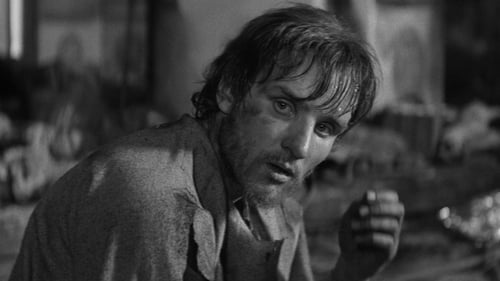
タルコフスキーとコンチャロフスキーという、旧ソ連の枠を脱して活躍することになる二大俊英が協力して脚本を執筆し、中世ロシア史上最高のイコン画家ルブリョフを主人公に、当時の社会と民衆の関わりを巨視的に捉えた歴史大作で、全体で二部構成。冒頭の、巨大な気球での飛行を試みる男たちの描写が象徴する閉鎖的な時代に、信仰と芸術の力によって風穴を開けたのがルブリョフと言える。彼は同窓の僧侶キリールに陥れられかけ、逆に大公の覚えめでたく宮廷画家となるが、連日、寺院の白い壁に向かい一筆も動かさない。神の愛を描きたいと願う彼の眼に時代は暗く映りすぎた。そして、公弟にそそのかされたタタール人が城を襲う(ここからが第二部)。ルブリョフは白痴の少女を救おうとして敵兵を討ち、後悔から筆を絶ち、修道院に戻るが、誰とも口をきかない。今や落魄の身のキリールとの再会……。ロシアはなお暗黒の中にあったが、大公は巨大な鐘の鋳造で威信回復を図る。今はなき名人の息子ボリースカの指導によって作業は開始され、ルブリョフはそれを興味深く見守る。秘訣を父に教わったという少年だが、実は鐘を作りたいばかりについた出まかせで、ようやく大鐘完成の暁に彼は真実を泣きながらルブリョフに明かす。彼は少年を賞賛し、自らも励まして言った。“君と一緒にやって行こう”……。15年にわたる無言の行の末、最初に出た言葉がそれであった。彼は再び絵筆をとり、その後、それまでの白黒とうって変わった鮮やかなカラーで写し出される偉大な作品群を残したのである。観ることが主人公の忍従に重なるような重厚な作品だが、それ故にラストの解放感は筆舌に尽くし難い。丸裸の自己と神--という一対一の構図を発見するまでの確執を描くのは、後のタルコフスキー作品にも通じるテーマだ。
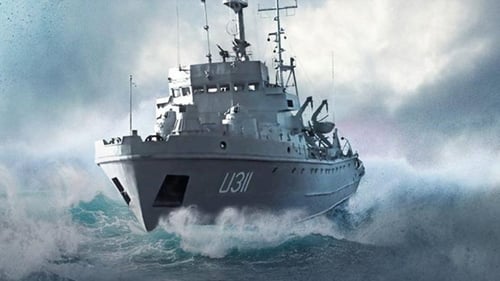
The crew of Ukrainian NAVY minesweeper U311 "Cherkasy" is resisting seizure of the vessel by Russian army in Crimea in 2014.
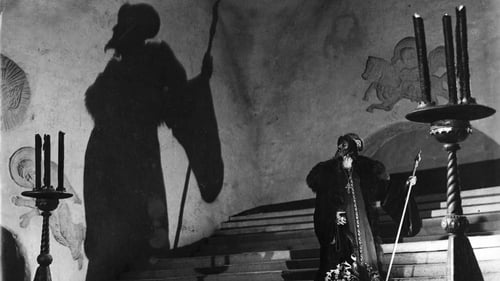
Set during the early part of his reign, Ivan faces betrayal from the aristocracy and even his closest friends as he seeks to unite the Russian people. Sergei Eisenstein's final film, this is the first part of a three-part biopic of Tsar Ivan IV of Russia, which was never completed due to the producer's dissatisfaction with Eisenstein's attempts to use forbidden experimental filming techniques and excessive cost overruns. The second part was completed but not released for a decade after Eisenstein's death and a change of heart in the USSR government toward his work; the third part was only in its earliest stage of filming when shooting was stopped altogether.
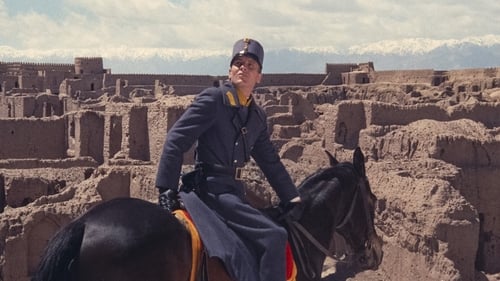
Lieutenant Giovanni Drogo is assigned to the old Bastiani border fortress where he expects an imminent attack by nomadic fearsome Tartars.

A practical joke ends up very wrong in Nigina Sayfullaevas curious youth drama. Two seventeen year old Moscow girls, Olya and Sasha, are visiting Olya's long lost father who lives in Crimea, when they decide to switch places and pretend to be the other person to the father. Little do they know that their joke comes with consequenses that will change their lives forever.
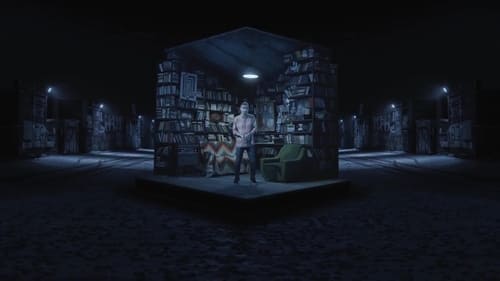
A theatrical documentary about Hrytsko Chubai, a genius of Ukrainian poetry, a connoisseur of literature, art and music and the brightest representative of Lviv underground culture of late 60s early 70s.

The film is a story about the officers, soldiers and seamen who did not betray their oath of loyalty to the people of Ukraine and their first hand accounts about Russia's invasion and annexation of Ukraine's Crimean Peninsula. They continue to fulfill their military obligations on land, on sea and in the air today.

A captain in the Czar's army encounters danger and romance while carrying a secret message across 19th-century Russia.

The film tells about the tragic date in the history of the Crimean Tatar people — May 18, 1944 — Stalin’s deportation of the Crimean Tatars. The plot of the film — a pilot, twice Hero of the Soviet Union, Amethan Sultan. In May, 1944, a year after liberation of Sevastopol Amethan goes on vacation to his native town Alupka. On May 18 his eyes witness begining of deportation of the Crimean Tatars.

Chain-smoking artists, poets and playwrights were among the colourful array of intellectuals living in the ‘Slovo House’ in 1920s Ukraine. The communist paradise was built under Stalin's approval, but it quickly became a prison. The brutal Soviet regime spied on the inhabitants, destroying their eccentric way of life and sealing their fate. This fascinating film explores the extraordinary story of the building and its residents.

At a popular vacation destination in Crimea every evening the entertainer Lyudmila Pashkova hosts "Where are you, talents?" - a friendly competition designed to amuse vacationers. Michael Gudkov, a vacationer from the northern Russian city of Murmansk, takes up the challenge performing his favorite song "My Female Sailor". In spite of a well-received performance the host did not award a victory to him. Feeling slighted Michael decides to compete every evening with his song until he gets his well-deserved prize becoming a favorite fixture of the local competition.

Documentary film about war crime — annexation of Crimea by the Russian Federation.

1971, Odessa Film Studio. The KGB studio curator orders a re-edit of just finished movie about the events of Ukraine’s 1920s "civil war" of a young director in line with the Party’s view on the historical events. This re-editing work is entrusted to a young female editor, which consequently realizes she must protect the director’s vision and the safe-guard the truth about her country under Soviet occupation.

One day a friend will betray you, and the enemy at the crucial moment will save lives.

The year 2011 marked the 70th anniversary of the deportations of June 14 1941, when 15 425 residents of Latvia (Latvians, Jews, Russians, Poles) were deported to Siberia. Among them there were 3 751 children aged up to 16. During the process men were separated from their families and sent to gulags, where many were sentenced to death, while others were imprisoned in labour camps. The facts of history and dry and few, but many of the victims and their children and grandchildren are still among us. During the summer of 2010, people who were deported to Siberia in 1941 as children joined their own children and a video production crew to travel back to the far North of Russia.

The children who were sent to Siberia in 1941 have not seen their fathers – in their memories they recollect: “My father was arrested, he was sent to Vyatlag camp. He died there in March, 1942. He was not convicted. Father was tried in the autumn of 1942, when he was already dead, Moscow Troika verdict: 10 years in prison and confiscation of property...”The railcar moves along overgrown rails. For 70 years, the twelve participants of the journey have wanted to go to the places from where their fathers did not return. Among the harsh nature the tension on their faces shows.

In 1944 Crimean Tatars has suffered a long road in exile. It was accompanied by famine, illness and loss. In the first years of exile, almost half of deported Crimean Tatars died. But those, who survived, dreamed of only one thing - to return to Crimea. The documentary 1944 tells about the tragedy of all Crimean Tatars through several separate life stories. They are cherished by each Crimean Tatar family and must be remembered by all generations to come.

Kharkiv, the 1930s. The heyday of Ukrainian art. Ambitious young poet Vladimir Akimov happily settles in at the new luxury "Slovo" House built specifically for artists. He comes from the provinces and works as a proof-reader in a printing press, and has never even dreamed of living under one roof with prominent Ukrainian writers and artists. He thinks his own poetry is genius, but nobody takes his literary efforts seriously, not to mention the occasional chuckles over his epigone poems. But fate smiles at him. The head of the political intelligence agency suggests that he become the author of a play written earlier. Akimov agrees, signing a non- disclosure note. The poet has no idea what price he will pay for this success. “‘Slovo’ House” is a story about a generation of Ukrainian artists persecuted by the totalitarian system, unfolding against the backdrop of one of the largest genocides of the 20th century: the Holodomor, which caused the death of almost 7 million people.


During the 12th Century a boy is born to a tribal chief. He is named Temujin, which means "blacksmith." Nine years later, his father is murdered by the Tartars After a long struggle, just when Temujin reclaims tribal chief status, the Merkit tribe kidnaps his wife. In order to fight against the Merkits, Temujin has to use his mother as a pawn in exchange for troops from ally tribes. Temujin manages to rescue his wife only to realise that she is pregnant with the enemy's child. Enduring tremendous anguish, Temujin throws himself into battle against the Tartars and slaughters the leader of the intruders. He eventually takes his wife back and accepts her child. Later on, he begins a campaign to unify all Mongolian tribes. By the age of 40, he is bestowed the title "Genghis Khan", which means "oceanic ruler".
















